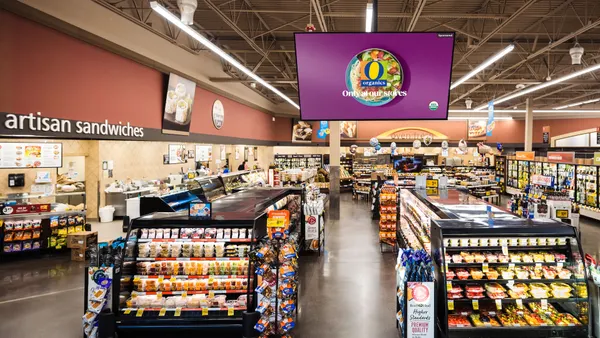Brief:
- ModiFace, a developer of augmented reality technology for the beauty industry, unveiled a technology to give users a realistic depiction of hair coloring that can be used in mobile apps, websites and in-store demonstrations. The company is showing off the tech in a new mobile app called “Hair Color” on Apple’s App Store, according to a press release by the company.
- The hair coloration app relies on a set of collaborative neural networks to detect hair in each video frame and to adjust the coloration of hair in a photo-realistic way, per the release. The implementation also uses machine learning in Apple’s new iOS 11 software for a fast and seamless video transformation. The patented neural network architecture was trained on 220,000 images of hair to be more effective at recognizing how hair looks.
- ModiFace technology is found in more than 200 custom AR apps for beauty brands including Sephora, Estée Lauder, Allergan, L'Oreal and Coty.
Insight:
The beauty industry has been an early adopter of AR technology, which overlays a digital image on a real background seen through a smartphone camera, to let consumers try on new looks without having to use real makeup samples.
ModiFace’s technology for hair coloration, which is shown in a YouTube video, is the next step in the development of more advanced algorithms that can recognize strands of hair in a picture and process them separately from a person’s face and clothing, which gives users a more customized experience. ModiFace’s Hair Color app also demonstrates the capabilities of Apple’s AR technology after the iPhone maker recently released its ARKit to help developers add more functions to apps that use the device’s camera as well as the machine learning built into iOS 11.
Apple’s redesigned App Store is steadily adding more mobile apps that include AR technology, including apps to virtually try on new tattoos, see how new furniture might look in a room and to play games like Pokemon Go, the app that popularized mobile AR last summer.
AR tech is being embraced by beauty marketers, with brands like Estée Lauder and L'Oreal rolling out virtual makeup apps earlier in 2017. As more consumers look to YouTube and online beauty bloggers for makeup tips, cosmetics brands are following suit and beefing up their mobile presence in response, so it’s not a stretch to expect that most brands will eventually incorporate AR into their capabilities to help people shop for beauty products online.









